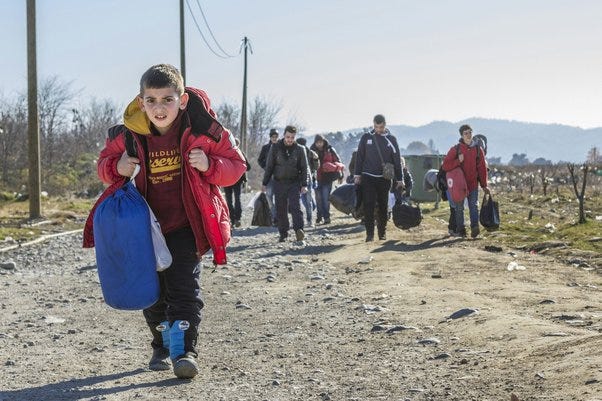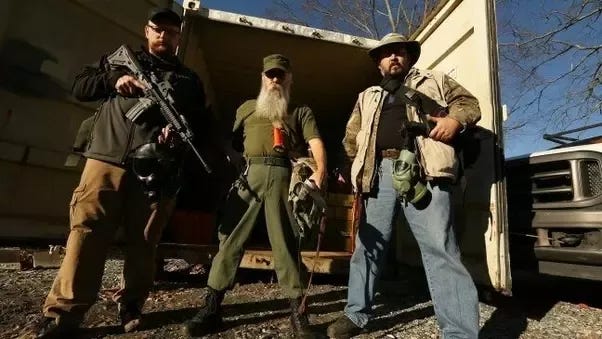How do you survive a losing war, as a civilian?
From Sarajevo to Aleppo, it is always the civilian population that suffers the most in every armed conflict. Having fought myself in two wars and having witnessed the suffering of the civilian population with my own eyes here are the do’s and the don’t’s when it comes to surviving the war as a civilian.
First of all, don’t think that you can survive a war by being hidden in your basement with a two year supply of food and water. You have to be mobile. If the war comes to your hometown, then flee! The further away from the fighting you are, the better. If you are sitting on thousands of dollars worth of survival meals in the basement of your cozy home, you’ll probably make the wrong decision and want to stay.
This little fellow will probably make it…
Go to the cities! The more people around you the better the chances of surviving. Many people mean many witnesses. Enemy soldiers and criminal gangs are less inclined to kill you just for the fun of it.
If you stay in the countryside, you’ll be fair game for everybody: Marauding soldiers, criminals, and militias will make your life Hell, even if there is no fighting going on.
Don’t take a gun with you! People will perceive you as a threat and while criminals will more likely kill you than without a gun, the enemy will execute you for being an irregular insurgent or terrorist.
Cash is King. Put your cash in a condom and then hide it in your rectum. Not all of it, though. You don’t want to pull it out of there every time you have to pay for something.
Take some cigarettes with you, even if you don’t smoke. Sharing a smoke with an enemy soldier at a checkpoint or a crook who is thinking about robbing you defuses the situation.
Cigarettes, antibiotics, and morphine are alternative currencies in many wars. While your cash might become worthless, the value of these three items is growing the longer the war goes on. Especially morphine is very demanded as there will be a lot of wounded people, but also many drug addicts who will swap their food in exchange for the drug.
Don’t wear fancy stuff. Leave your expensive clothes at home and dress something simple. You don’t want to get noticed, so don’t dress in bright colors. But also don’t wear any military clothes or camouflage as you might be mistaken for a soldier.
…while these guys would most likely end up dead very quickly
You will have to walk a lot, so get yourself a comfortable pair of shoes.
Information is very important. Take a cheap shortwave radio with you to find out where the front lines are and where food and shelter can be found. If refugee camps have been set up, then go there. The living conditions in these camps are often horrible, but they’ll offer you security.
You might get separated from your family or friends. Designate places where you can reunite with them or where you can leave messages for each other.
Every war is different and a lot of things that you have to do are depending on the situation. For example, you might also want to take things like maps, torches or a first-aid kit with you.
In the end, what will be much more important than any physical item that can be carried around will be your mindset: The willingness to leave everything behind, to swallow your pride, to hide your feelings and to carry on.












